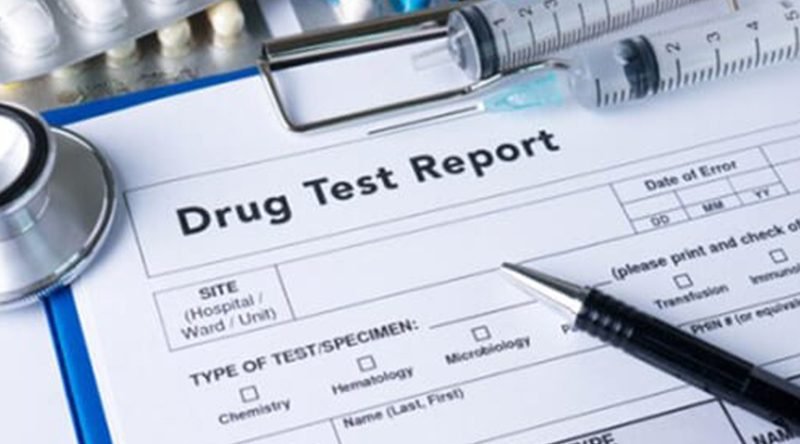Drug testing in the workplace is a valuable tool for maintaining a safe, productive, and compliant environment—but it’s also a legal minefield if not handled correctly. From privacy concerns to federal and state regulations, employers need to understand the legal framework that governs drug testing policies and procedures.
Whether you’re implementing a new policy or updating an existing one, this guide breaks down the key legal considerations around workplace drug testing and how to protect your business while staying compliant. Plus, we’ll explain how to find a certified drug testing service near you to ensure professional and legal administration of tests.
Why Drug Testing in the Workplace Is Legal—But Regulated
Yes, drug testing is legal in the United States, but it’s subject to specific rules depending on:
- Federal laws
- State and local legislation
- The nature of the job
- The type of test (pre-employment, random, post-accident, etc.)
Employers must strike a balance between ensuring a drug-free workplace and respecting employee rights. Failing to do so could lead to lawsuits, discrimination claims, or regulatory penalties.
Federal Laws Employers Must Follow
1. Americans with Disabilities Act (ADA)
The ADA prohibits discrimination against individuals with disabilities, including those recovering from substance use disorders. However, it does not protect individuals currently engaging in illegal drug use.
Employers can drug test applicants or employees, but must:
- Avoid testing in a discriminatory or retaliatory manner.
- Accommodate employees recovering from addiction under certain circumstances.
2. Drug-Free Workplace Act of 1988
Applies to businesses with federal contracts or grants. These employers must:
- Maintain a drug-free workplace policy.
- Establish procedures for drug awareness and penalties.
- Enforce actions against employees who violate the policy.
3. Department of Transportation (DOT) Regulations
DOT-regulated industries (e.g., trucking, aviation, railways) are subject to strict testing requirements, including:
- Pre-employment testing
- Random testing
- Post-accident testing
- Return-to-duty and follow-up testing
Employers in these sectors must use certified labs and trained collectors, which is why partnering with a trusted drug testing service near you is essential for compliance.
State Laws Vary—Know Your Local Requirements
State-specific drug testing laws vary widely and may affect:
- Whether testing is allowed at all
- Which testing methods are permitted (urine, hair, saliva)
- Whether testing can be done randomly
- Notice requirements before testing
- Employee rights to contest or retest
For example:
- California requires that drug testing policies respect employee privacy.
- Florida offers premium discounts on workers’ comp for compliant drug-free workplace programs.
- New York has strict limits on marijuana testing following legalization.
Employers must research state-specific laws before implementing drug testing policies. Working with a local or national drug testing service near you can help you navigate these nuances and stay compliant.
Types of Legally Accepted Drug Testing
The legality of workplace drug testing also depends on the timing and purpose of the test. Common types include:
- Pre-Employment Testing
Legal in most states; must be applied consistently to all applicants. - Random Testing
Typically legal for safety-sensitive positions; must follow a fair and unbiased selection process. - Reasonable Suspicion Testing
Permitted when there is documented evidence of potential drug use. - Post-Accident Testing
Often required in safety-sensitive roles, especially in DOT-regulated industries. - Return-to-Duty and Follow-Up Testing
Required after an employee returns from a drug rehabilitation program or after a failed test.
Ensure your testing policy clearly outlines when and how each type of test is administered.
Privacy and Consent
Employees have a right to privacy, which means drug testing should be:
- Conducted in a professional, respectful setting
- Administered by certified personnel
- Confidential, with results disclosed only to authorized individuals
Employers must obtain written consent before testing and inform employees of their rights. Your testing policy should be available in writing and acknowledged by all employees.
Using a Reputable Drug Testing Service
To avoid legal pitfalls, it’s important to use a reliable and certified drug testing service near you. Here’s what to look for:
- CLIA-certified labs
- DOT compliance (if applicable)
- Fast turnaround times and secure results reporting
- Knowledge of local, state, and federal laws
- Chain-of-custody protocols to ensure defensible results
A reputable drug testing service helps ensure that all testing is conducted legally, ethically, and in accordance with your policy guidelines.
Final Tips for Employers
To legally implement a workplace drug testing program, follow these best practices:
Develop a written policy that outlines the purpose, process, and consequences of testing
Apply the policy consistently across all employees or applicants
Stay informed about changes to local, state, or federal laws
Train supervisors to identify signs of drug use and administer the policy fairly
Partner with a certified drug testing service near you to manage logistics and compliance
Conclusion
Navigating the legal side of workplace drug testing doesn’t have to be overwhelming. With a clear policy, a solid understanding of the law, and a trusted partner, you can create a program that promotes safety, compliance, and professionalism.
Whether you’re hiring your first employee or managing a large workforce, using a professional drug testing service near you ensures your program meets all legal standards—and gives you peace of mind.
